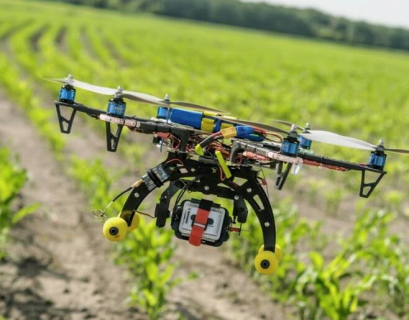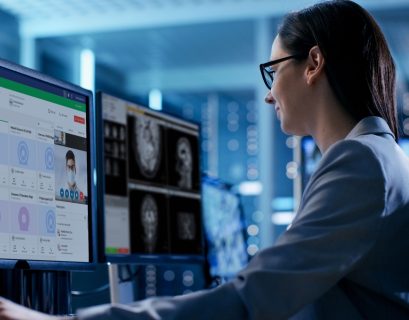How can nonprofits achieve more with less?
How can they stretch their limited resources while maximizing their impact?
These are common questions that nonprofit organizations deal with every day. With tight budgets and limited staff, nonprofits need tools that can help them achieve their missions efficiently and effectively.
One such tool that’s changing the game is Artificial Intelligence (AI). From enhancing fundraising strategies to improving the measurement of outcomes, AI is empowering nonprofits to work smarter, not harder.
Moreover, Non-profit organizations are much more advanced than the private sector when talking about using AI as one of the reports by Non-Profit PRO mentions:
Nonprofits are adopting AI faster than the private sector, with 58% using AI in their CPaaS solutions, compared to 47% of B2C businesses. Additionally, 68% of nonprofits use AI to analyze end-user data and understand needs, ahead of 64% of B2C brands..
From smarter fundraising strategies to better ways of measuring outcomes, AI is helping organizations achieve their missions with greater success.
Let’s explore how AI is reshaping nonprofit operations.
AI is Revolutionizing Fundraising
Fundraising is a significant part of every nonprofit’s strategy. With the help of AI, organizations can understand their donors better and raise more funds efficiently.
Various AI devices such as a smart PC using its advanced algorithms can help nonprofits to process and analyze donor data seamlessly, allowing them to predict future giving patterns.
This helps nonprofits target the right people with the right message at the right time, maximizing their fundraising efforts.
- Personalized Campaigns: AI analyzes past donations and online behaviour through Predictive AI and sends personalized messages that resonate with individual donors.
- Improved Donor Retention: With predictive analytics, AI can identify at-risk donors and suggest retention strategies to keep them engaged.
- Automated Donor Outreach: AI-powered systems can send automated emails or texts at just the right time, nurturing relationships without extra effort from staff.
By implementing these AI-driven solutions on a Smart PC, nonprofits can focus on building relationships while the system handles the heavy lifting. This means more time for mission-driven work and less time spent on administrative tasks.
Streamlining Operations Through Automation
AI is also helping nonprofits streamline internal operations, saving valuable time and resources. Routine tasks such as data entry, scheduling, and reporting can be automated with AI, freeing up staff to focus on higher-level strategic activities.
- Automated Data Entry: AI-powered systems can quickly and accurately enter donor and event data, reducing human error and administrative workload.
- Event Planning Automation: AI can schedule meetings, track RSVPs, and send reminders to attendees automatically, making event planning easier and more efficient.
- Resource Allocation: AI can help organizations allocate resources by predicting demand and analyzing data from past events, ensuring that funds are spent efficiently.
With AI running these routine tasks, nonprofits can achieve greater productivity with fewer resources.
Enhancing Volunteer Management with AI
Nonprofits often rely heavily on volunteers, and AI is helping organizations manage them better. AI can assist in recruiting, training, and scheduling volunteers, ensuring they are utilized most effectively.
- Volunteer Matching: AI systems analyze the skills, availability, and preferences of volunteers, matching them with the right opportunities.
- Training and Support: AI can offer on-demand training modules for volunteers, ensuring they’re equipped with the knowledge they need without taking up staff time.
- Volunteer Scheduling: AI tools can track volunteer availability and automatically schedule shifts, ensuring that all positions are filled without human error.
By using AI-powered tools on a PC, nonprofits can manage volunteers more effectively, helping them run smoother operations and focus on delivering value to their communities.
Measuring Impact and Reporting Outcomes
Nonprofits often struggle with measuring the real impact of their work. AI is transforming this by providing data-driven insights into how well programs are performing. It allows organizations to track the effectiveness of their initiatives in real-time, making it easier to report back to donors and stakeholders.
- Real-Time Analytics: AI tools can track program performance and provide real-time data on key metrics, allowing nonprofits to make informed decisions quickly.
- Impact Forecasting: AI models can forecast the outcomes of programs based on past data, helping nonprofits adjust their strategies for better results.
- Automated Reporting: AI can generate detailed reports automatically, saving staff the time and effort spent compiling information by hand.
With an advanced PC, nonprofits can manage large datasets and generate detailed reports, offering insights into their impact and helping them make adjustments as needed.
Improving Communication with Stakeholders
Effective communication is key to maintaining relationships with donors, volunteers, and beneficiaries. AI-powered systems help nonprofits communicate more efficiently by automating messages and providing personalized responses.
Image source : Martechcube.com
- Chatbots for Instant Communication: AI chatbots can answer common questions on websites or social media, providing immediate support to potential donors or volunteers.
- Personalized Email Campaigns: AI systems can analyze donor preferences and automatically generate customized email campaigns that appeal to specific interests.
- Automated Social Media Posts: AI can schedule and post content on social media platforms, keeping stakeholders engaged without requiring manual effort.
By utilizing AI-powered PCs, nonprofits can communicate with their supporters in a more personalized and efficient way. This helps strengthen relationships and keep the community informed about ongoing initiatives.
Data-Driven Decision-Making
Data is a valuable asset for nonprofits, but processing it can be overwhelming. AI enables organizations to make better, data-driven decisions by analyzing large sets of data quickly and accurately.
- Predictive Analytics: AI tools can predict trends based on historical data, helping nonprofits make informed decisions about future campaigns or programs.
- Optimized Resource Management: AI can analyze spending and outcomes, suggesting areas where resources can be optimized for maximum impact.
By using advanced PC with AI capabilities, nonprofits gain access to powerful decision-making tools that allow them to manage resources, track performance, and forecast future outcomes with precision.
Cost-Effective Solutions for Smaller Nonprofits
AI doesn’t just benefit large nonprofits with substantial budgets. Small organizations can also leverage AI-powered tools to improve efficiency without breaking the bank. Many affordable AI solutions are available, and using an Advanced PC makes them even more accessible.
- Affordable AI Tools: Many AI solutions are designed to be affordable and easy to implement, making them accessible to organizations of all sizes.
- Cloud-Based Solutions: AI tools are often available through the cloud, meaning that nonprofits don’t need to invest in expensive hardware to take advantage of them.
- Scalability: As nonprofits grow, AI solutions can scale to meet the increasing demands of larger operations.
Conclusion
AI is transforming the way nonprofits operate, from fundraising to impact measurement. With the help of Smart PCs and AI-powered PCs, nonprofits are able to streamline their processes, engage donors and volunteers, measure their impact more accurately, and make data-driven decisions.
The result is a more efficient, effective, and sustainable nonprofit organization that is better equipped to achieve its mission. Whether you’re a large organization or a small one, AI is a game-changer that can help you do more with less and maximize your impact.
Also Read: The Role of AI Computers in Business Risk Management












